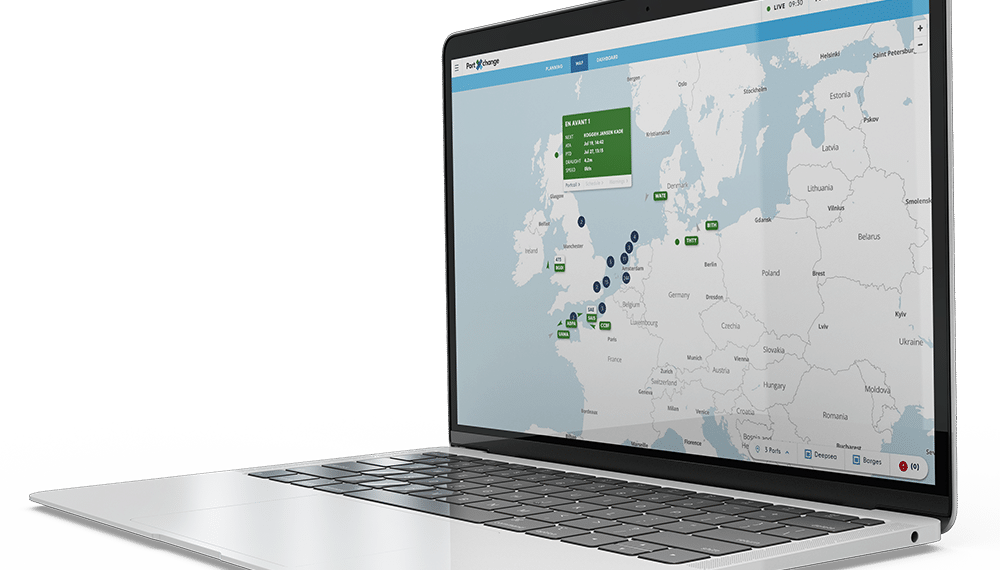Just in time tech could slash carbon emissions says PortXchange while governments consider new carbon emission taxes for shipping
Shipping decarbonisation startup PortXchange has published a new whitepaper examining the potential emissions impact of Just-In-Time (JIT) port arrivals, claiming that operating under such a structure could reduce global container shipping emissions by at least 5%, translating to approximately 17 million tonnes of CO2 emissions annually.
The research is based on field trials conducted by the company using its own Synchronizer technology, which advises carriers on how to optimise their speed during a voyage based on real-time berth availability.
Based on the data collected, the paper identifies ports where JIT port arrivals could stand to have the greatest impact, including Buenos Aires, Moin, Valencia, and Tanger Med.
Other case studies are included to demonstrate potential emissions savings missed, such as the example of a vessel travelling from Genoa to Valencia that could have saved approximately 15.85 tonnes of fuel by following JIT recommendations, with emissions equivalent to more than 50 tonnes of CO2.
“Our white paper is a call for collective action, extending an invitation to governments and regulatory bodies to recognise and leverage JIT technologies to fast-track global environmental goals,” said Abhishek Nair, Business Development Director of PortXchange.
“There is no excuse. The technology to achieve dramatic CO2 reductions in the maritime industry is at our fingertips.”
According to The Guardian news website, the International Maritime Organization, the UN division that governs global shipping, will meet in or a fortnight of talks on decarbonising and the potential for a new levy of up to $100 (£78) a tonne of carbon produced by ships.
A shipping levy was discussed by nearly 40 world leaders and the heads of global financial institutions last week in Paris. The summit for a new global financing pact, hosted by French president Emmanuel Macron, heard arguments from developed and developing countries in favour of a tax, the revenues of which would flow to the “loss and damage” fund, to help countries suffering the ravages of extreme weather.
World Bank estimates show that a carbon tax on shipping could raise as much as $50bn to $60bn a year.
Japan, the world’s second largest ship-owning nation, has called for a carbon tax of $56 a tonne of carbon from 2025.
But the US is in a difficult position, as president Joe Biden could face stiff resistance to any plans from a Republican-controlled Congress. Janet Yellen, the treasury secretary, signalled a cautious welcome to the proposal at the Paris conference, and John Kerry said he was personally open to such ideas but this was not the official position of the administration.
Meanwhile, European shipping emissions grew 3% last year as the industry edges closer to pre-pandemic levels, new Transport & Environment (T&E) analysis shows. Cruise ship emissions were well up on the year before while a high number of vessels transporting LNG contributed to driving up emissions. The industry is moving closer to the point of no return, says T&E





